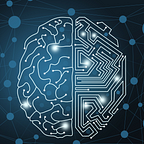Artificial Intelligence-Enabled Healthcare Delivery
The possible roles of Artificial Intelligence strategies in healthcare delivery and medical research continue to become evident. A lot of studies have shown the efficacy and use of applications that are enabled by AI. The technical advances are now worth a considerable investment in the application of Artificial Intelligence in healthcare by the government and technology firms. The United States Food and drug administration (USFDA) is accepting the use of AI-enabled medical appliances in the market. There are areas in healthcare that need the use of AI, and they include healthcare admission, clinical decision report, patient monitoring, and healthcare interventions.
i.) Healthcare admissions
The work of delivering healthcare is not easy because a lot of hospitals in several states are facing pressures beyond their capacity due to the administrative burdens and also resourcing constraints. However, information and technology devices have been used to lessen the burden on the health service, and strategies of looking for relevant data have been recognized, and the best approaches that are supporting the healthcare system administration by supplementing clinical care and also decreasing the demands that the clinicians have to adhere to (Reddy & Purohit 2019). By doing some routine tasks like entering the data of patients, automatically reviewing the laboratory and image results, AI can give time to nurses who give direct care to the patients. Additionally, the speed of AI applications is high compared to that of the nurse and doctors; therefore, a lot of work is done in a short time, and several patients can be admitted in a short time frame.
ii.) Clinical decision support
Clinical decision support is the systems in a computer that give the decision given by clinical professions. They are helpful in reducing medical errors and also result in increased consistency and efficiency of healthcare. There are “machine learning algorithms” that can be used to determine the growth of septic shock and help diagnose and treat patients with chronic pulmonary diseases.
iii.) Patient monitoring
The development of devices like smartphones and fitness motoring devices that use AI strategies to monitor patients has been of great importance. These devices are able to record the temperature, sleeping patterns, and heartbeat rates of patients compared to before (Reddy 2018). Additionally, the devices also have other settings like waveform patterns that can be used to monitor and analyze ultrasounds in hospitals. The AI used in intensive care units is used to monitor and interpret the vital signs of a patient.
iv.) Healthcare interventions
the development of AI has assisted in healthcare interventions to be used by individuals or groups of people. The “machine learning programs” used together with “electronic health records” can monitor biometric and other medical information of particular patients and can also suggest the treatment plan that can be used. The AI programs connected to the hospital servers can analyze the recorded data of patients and answer to the questions of patients hence reducing time wastage in pressured emergency areas. There is a promise of developing computers with visions and robots that will be fast and cheap in diagnosing and treating.
References
Reddy, S., Fox, J., & Purohit, M. P. (2019). Artificial intelligence-enabled healthcare delivery. Journal of the Royal Society of Medicine, 112(1), 22–28.
Reddy, S. (2018). Use of artificial intelligence in healthcare delivery. In eHealth-Making Health Care Smarter. IntechOpen.
